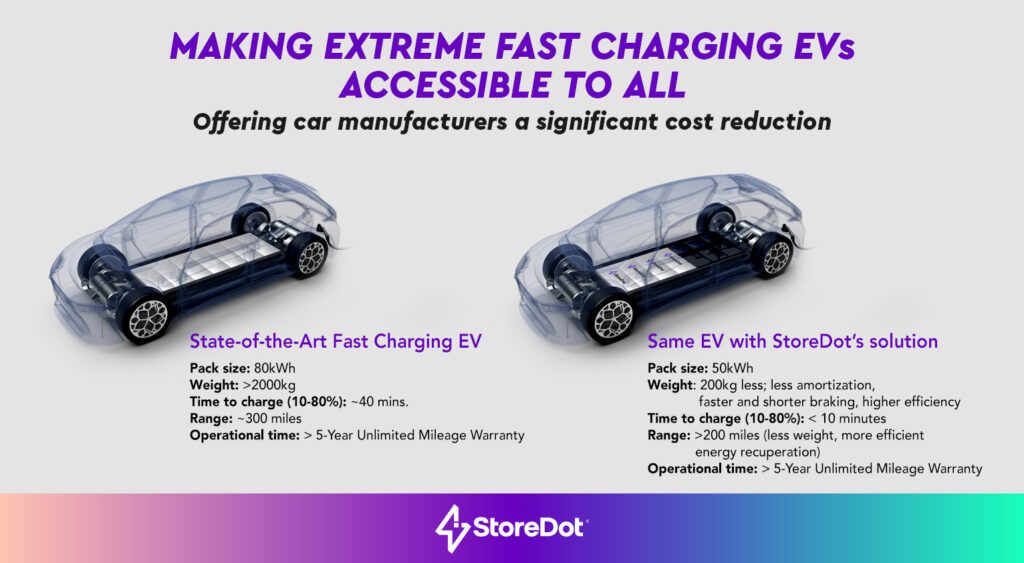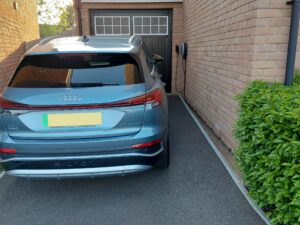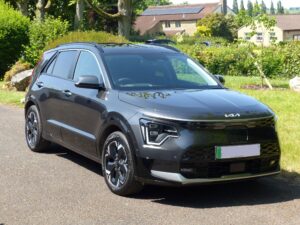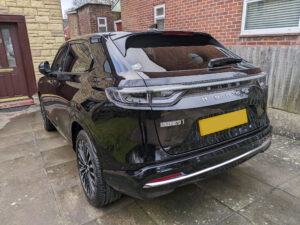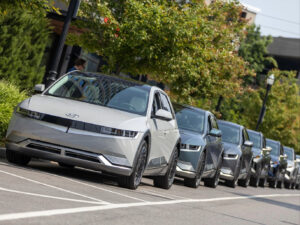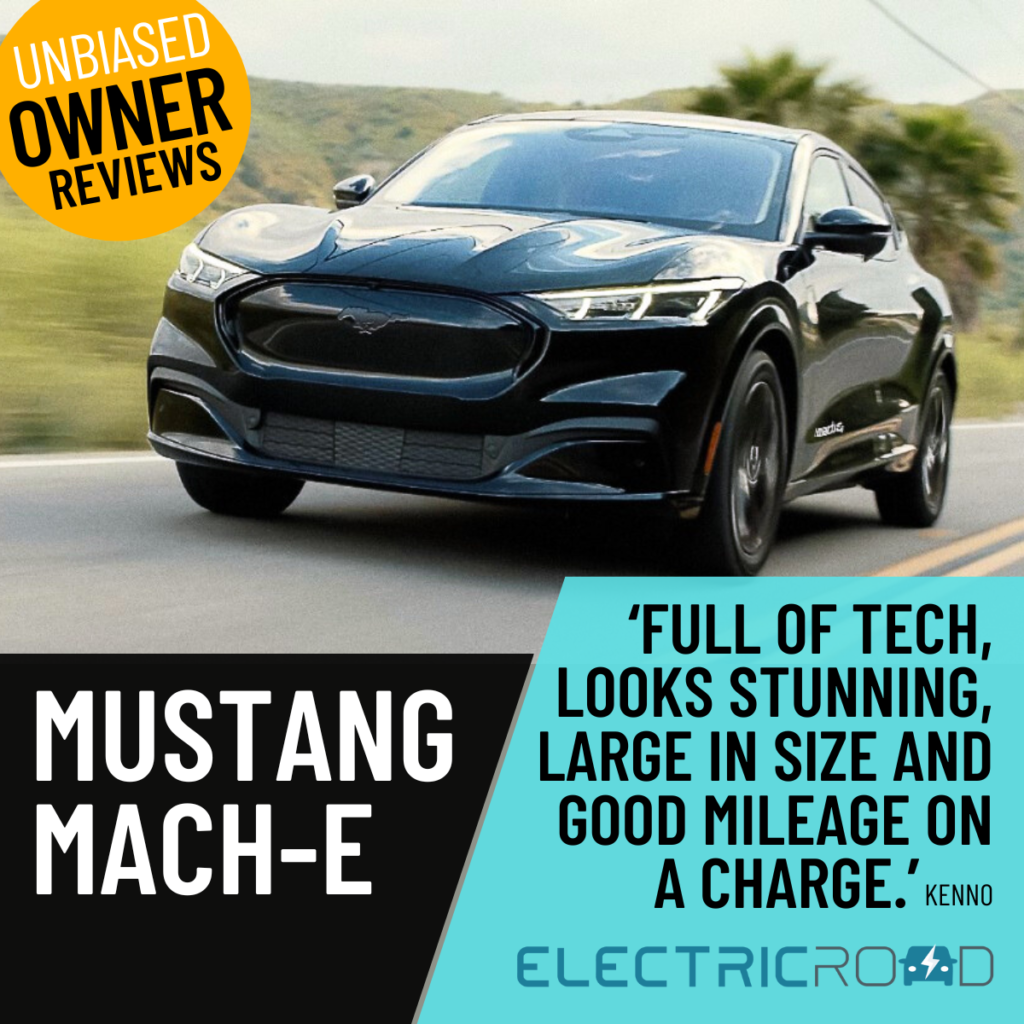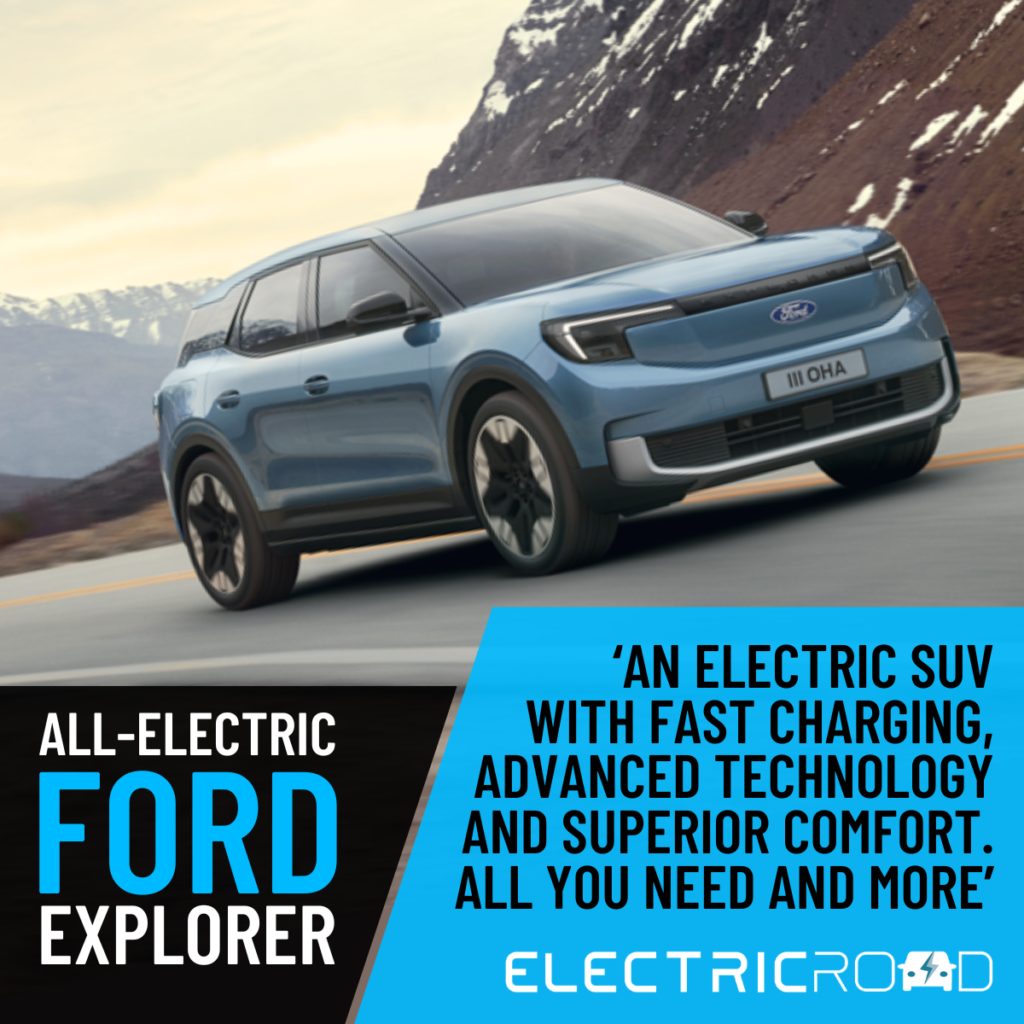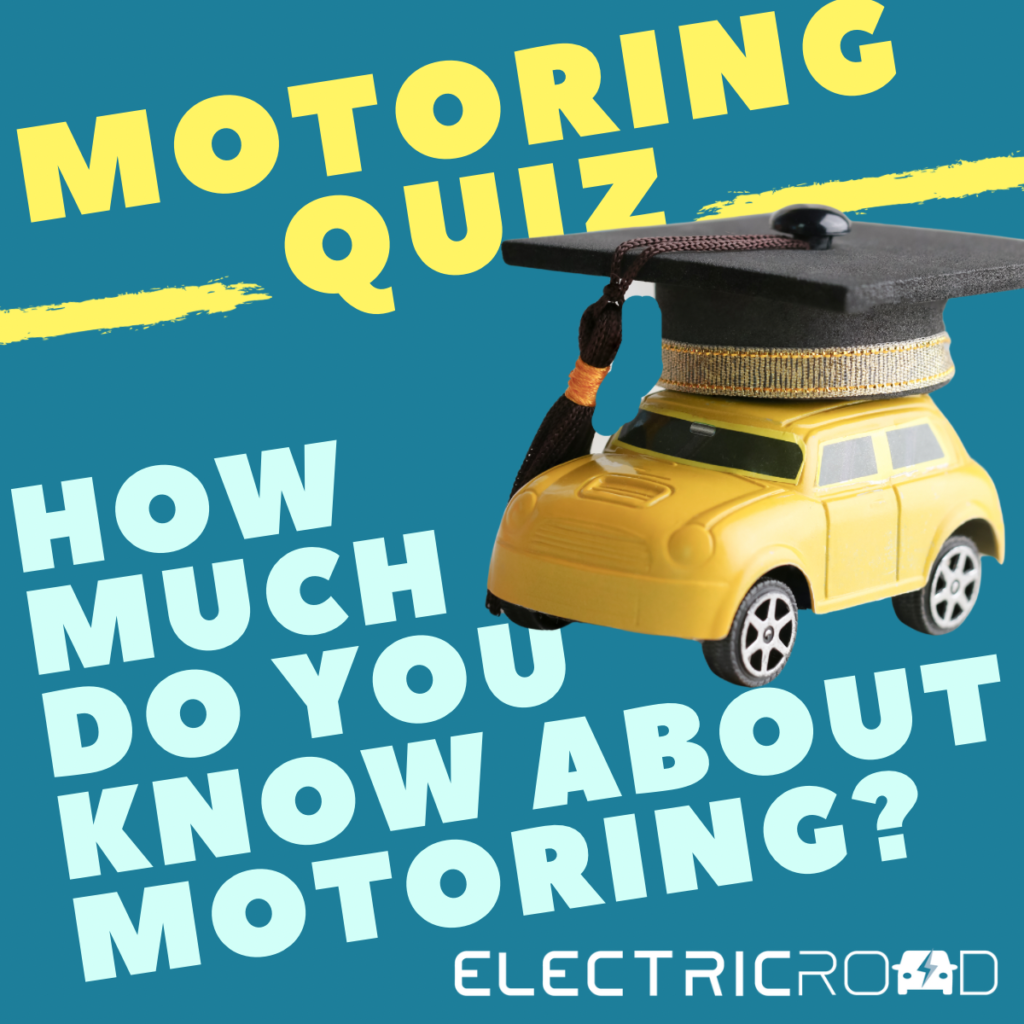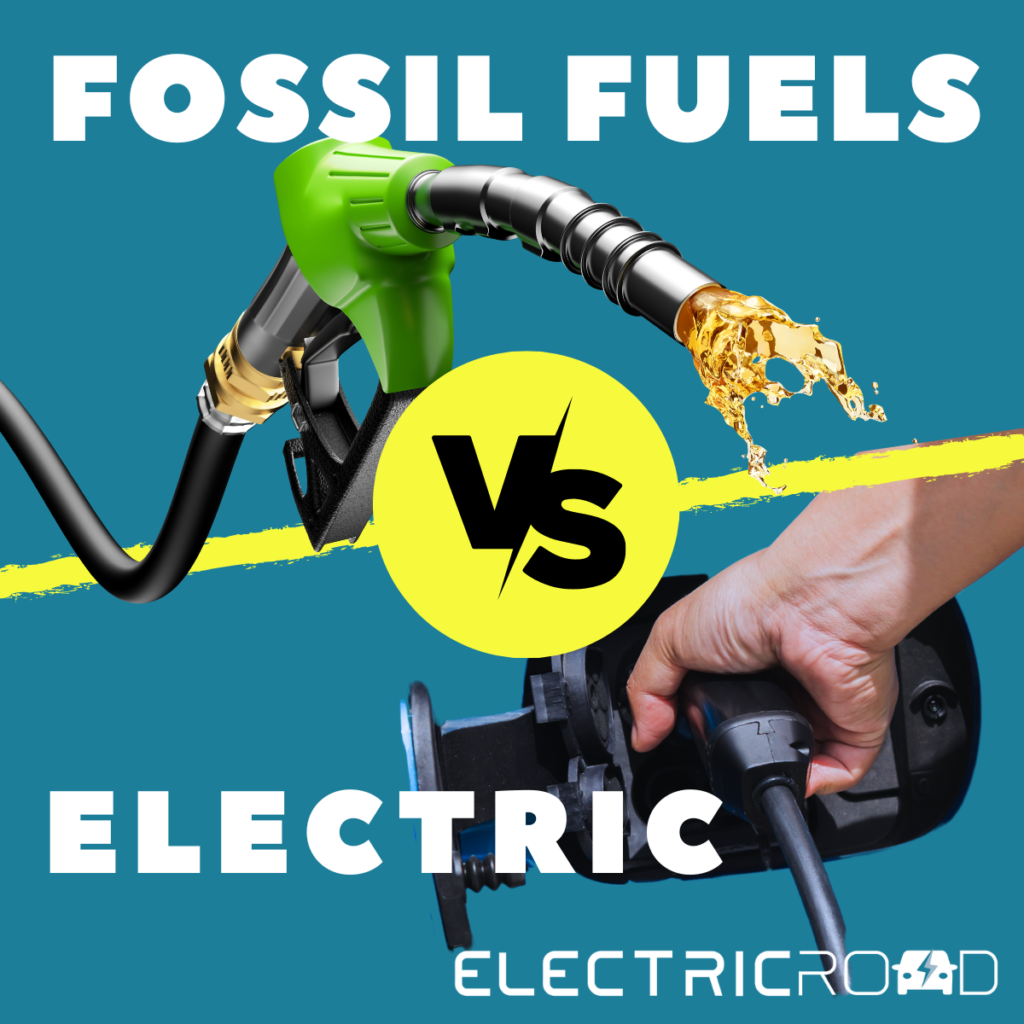StoreDot will soon be manufacturing silicon batteries that enable car makers to design and produce cheaper, lighter and more sustainable EVs.
With the optimal driver experience of extreme fast charging in mind, StoreDot’s technology has reached sufficient charging and discharging cycles that it will enable vehicle manufacturers to include a smaller battery pack.
Smaller packs with XFC translate into improved EV specifications including better car efficiency, increased utilization of regenerative braking, reduced carbon footprint and lower costs. As a result, such affordable and lighter EVs will serve a broader audience and further enhance the adoption to EVs.
StoreDot is now on track to deliver its 100in5 silicon-dominant extreme fast charging batteries to car manufacturers by next year. This transformative technology will deliver 100 miles, or 160km of range in just five minutes of charge. As a result, EV drivers will no longer need to worry about the range between charges or charging times, allowing car makers to re-evaluate the specifications of electric vehicles. With StoreDot’s XFC technology, OEMs will be able to optimize a vehicle’s weight and cost, rather than pushing for ever greater range and battery size.
Downsizing from an average premium vehicle requiring an 80kWh to a 50kWh battery pack could save approximately 200kg from the EV’s weight (the equivalent weight of 3-4 people) and importantly, could reduce the build cost of the car by $4,500, depending on metal cost fluctuations and energy density improvements*.
Are you seriously considering your first or next EV? Then visit Electric Road’s CAR FINDER to get the right car for you!
The environmental impact of such a design change will be highly significant too as it will lower the amount of raw materials used in each vehicle, reducing its EV carbon footprint throughout its lifecycle. XFC in smaller packs also means efficient regenerative braking as it can accommodate the corresponding recuperated high currents.
Dr Doron Myersdorf, StoreDot CEO:
“Up until recently OEMs were increasing the size of battery packs in their EVs because a proportion of drivers were transitioning from gas to electric for the first time with the known ‘range anxiety’ in their minds. Those drivers, and anyone who is an EV advocate now realize that range anxiety is no longer the most pressing issue – and won’t even be an issue at all once public charging infrastructure around the world is properly in place.
“The two remaining barriers to EV ownership are charging anxiety and cost and StoreDot’s XFC solution was designed to assist with both. Radically reduced charging times will allow automotive manufacturers to rethink how they approach battery size and range. When charging times are no longer an issue, it makes a lot more sense to fit smaller battery packs. The cost savings could transform the accessibility of EVs and sustainability of batteries, with better car efficiency, fewer raw materials needed and less recycling at the end of their in-vehicle life.”
StoreDot’s XFC battery cells are now being tested by over 15 global automotive manufacturers, while the company continues to develop its manufacturing partnerships on a global scale.
Notes:
* Calculations made using StoreDot’s online calculator


